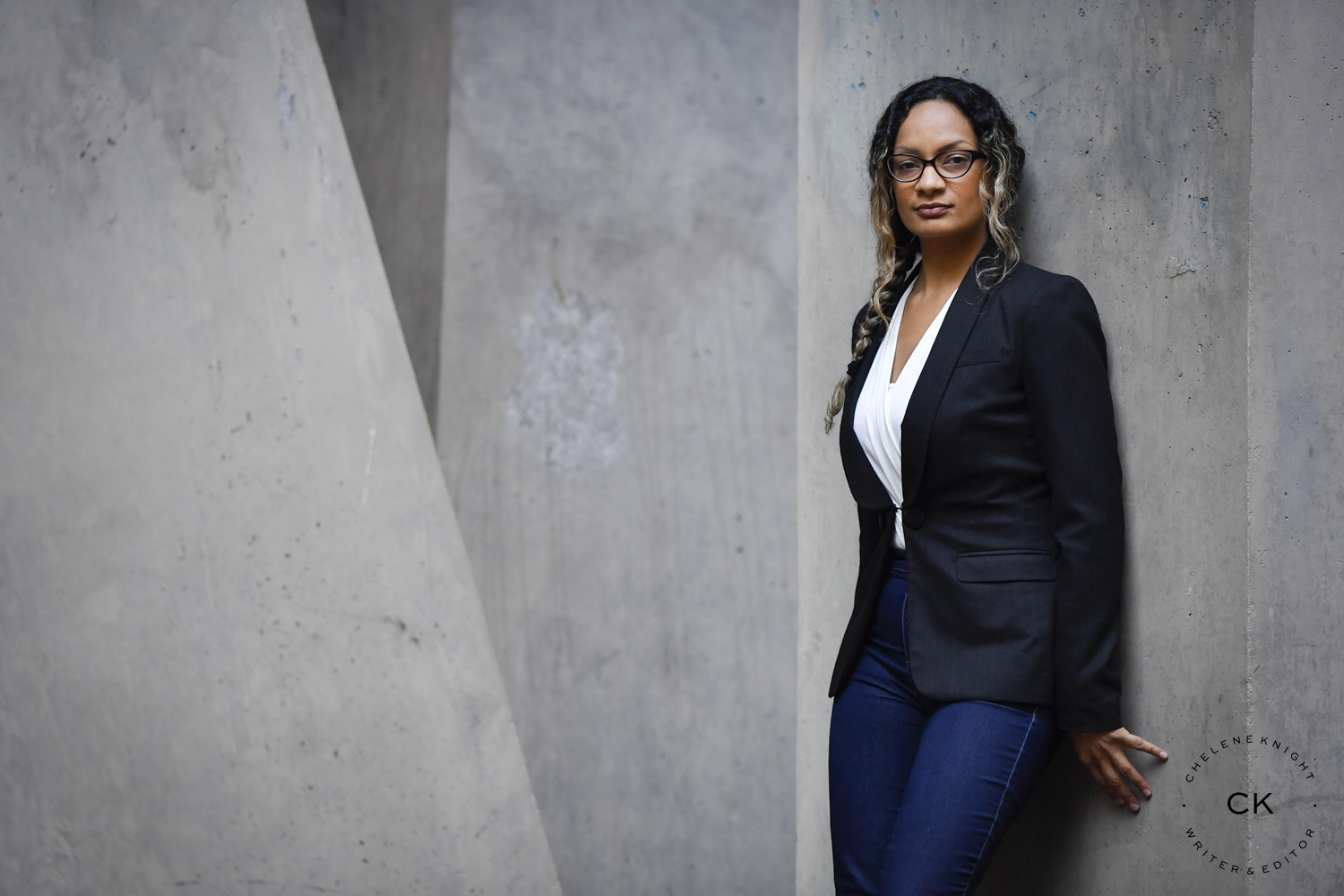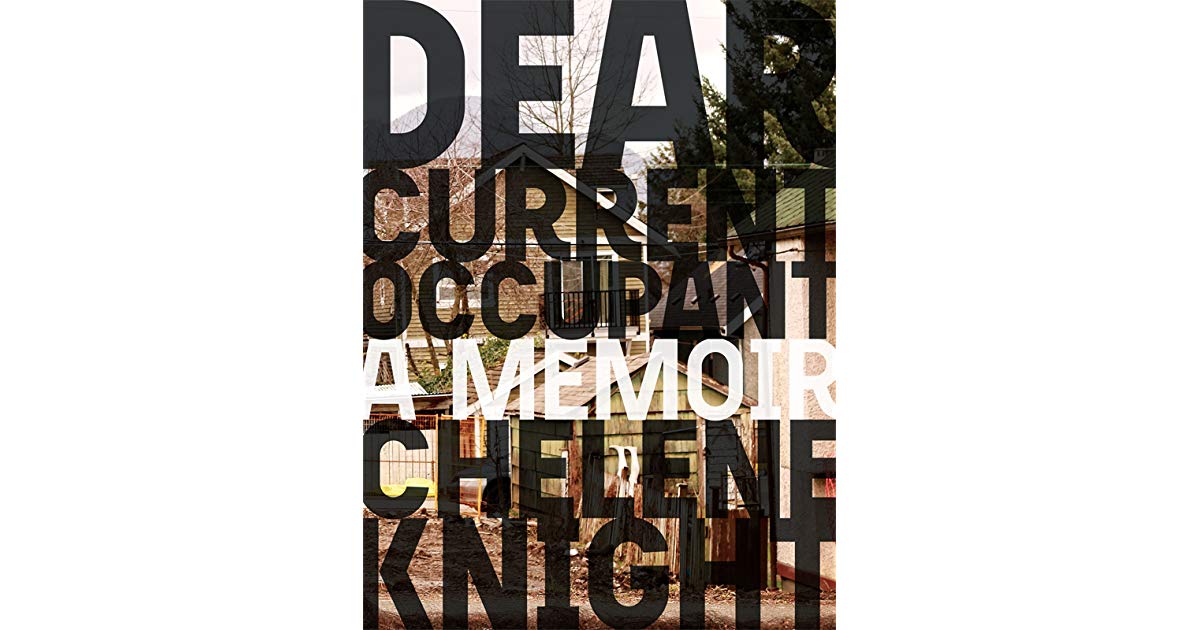Writing Black Futures: I see you creating strong bonds
By Chelene Knight
In February of 2018 I had curated an event at the Vancouver Public Library called “Where are you really from?” which I hoped would create a safe space for dialogue around what it means to identify as black and live in Vancouver while constantly be asked where you are really from.
The week leading up to the event, I felt good, I felt excited. I was trying all kinds of shoulder-padded blazers on, selecting the right shoes, I felt ready. I was eager to share stories on stage with some of my favourite folks. Like any literary event I’ve done in Vancouver, I’m used to speaking in front of mainly white audiences. This is what I had become accustomed to. But when I peeked through a crack in the door of the green room and saw all 300 seats in the room filled with a majority of black people, and heard lively talk and laughter quickly fill the room, my heart picked up speed. I don’t know why my face was sweaty or why my heart decided to suddenly start up some sort of choreographed dance routine inside my chest, but it was happening. I was seemingly more nervous than usual, but it was just another event, right? And I have done enough of them to consider myself a seasoned pro, so why the nerves?
But looking back at those green room nerves I had this nagging fear that maybe I cannot win. Fear and apprehension always make themselves known whether I am the only person of colour at a literary event, or whether I am not. I was happy to stumble upon [1]Jen Sookfong Lee’s self-reflective essay where she says, “I had learned some things about privilege, about the great discomfort I had often felt whenever I was the only person of colour in a literary room, about the kinds of criticisms my books, my race, and my appearance were subject to by critics, the media, and, sometimes, other authors.” In reading that I realized where the fear came from, and what I needed to start doing to feel less alone. I needed to build community.
“Where are you really from?” ended up being one of the most successful events I’ve curated to date. As the event came to a close, it was time to pass the mic to the audience so that they could share their experiences and hold that same space with us. It was incredible to hear folks’ stories of living in Vancouver, their connections to different parts of the city and how they too longed for more than what seemed to happen during Black History Month. One of the questions that embedded itself on the brain came from Siobhan Barker. She mentioned that events like this were great, but that after they are said done, folks simply returned home with no real way to reconnect. So her question was how do we make sure we can continue to share space come the end of February? Silence. No one had a real answer for her. But I remember thinking, wow she’s so strong and powerful.
This need for community was reinforced last night after attending the Black History Month Celebration at City Hall, here in Vancouver. I heard Tonye Aganaba speak of feeling so alone and how it felt being the only “black guy on the block” and the City of Vancouver proclamation recipient Dr. June Francis tell us all how “our histories are stamped in our DNA. The story of our DNA speaks of people who survived so that we can stand here. So who are we to give up?” In hearing her say this, it again solidified not only a need and desire to establish a sense of black community in Canada, but more specifically in Vancouver. Anyone who knows the history of Hogan’s Alley and the displacement of the black community that took place with the installation of the Georgia Viaducts, would agree with June Francis’s words. She also said that “the Georgia Street viaduct is a monument to Black oppression and displacement. City of Vancouver can return it to the stewardship of the Black people ... that viaduct is stained. It has to come down.”
Last night I realized this is exactly why the nerves emerged that night. Peeking through the green room looking out into a room filled with over 300 black people in Vancouver made me nervous about getting it wrong. I knew they would see me. I was nervous about bringing people together with the threat of never being able to do it again. I was afraid (like Siobhan Barker said) of not being able to reconnect. I did not want to let anyone down.
How do we build these communities and keep them alive, fed, and well—aside from just shoving folks in a room once a year? We ask each other what we need, we deliver, and we repeat. I see it happening every day in my own family. I see my aunts (whom I consider to be some of the strongest black women I know) taking care of each other, not judging each other for past decisions or mistakes. I see my mother and grandmother connecting in ways I hadn’t noticed before. I see it with myself and my son. I definitely see it in the writing community. Black Canlit is stepping up the literature game and I think that’s a pretty damn good start. In my personal experience I’ve had mentors like Whitney French offer to call me and talk about her suggested edits on an essay I’d sent her. I’ve had writers like David Chariandy, Wayde Compton, and Juliane Okot Bitek, personally ASK me what I need to do the work I am doing. I’ve watched emerging writers like Nailah King, and Chantal Gibson step up and challenge the norm, break the templates and write their stories authentically, which in turn empowers all of us to do the same. The support and building of community start at home, that’s for sure. I feel it. I see it.
The next time that fear creeps in, that nervousness, I’ll look to Audre Lorde who said “When I dare to be powerful, to use my strength in the service of my vision, then it becomes less and less important whether I am afraid.”
This Black History Month I choose to look to the future and it is looking good. I see the people out there doing the work. I see the people waving their hands to get noticed and creating the necessary conversations that will hopefully lead to creating life-long bonds. I see you.
[1] From “On Margaret Atwood and the New Canlit”, Open Book
Your CanLit News
Subscribe to Open Book’s newsletter to get local book events, literary content, writing tips, and more in your inbox
The views expressed by Open Book columnists are those held by the authors and do not necessarily reflect the views of Open Book.
Chelene Knight is the author of the poetry collection Braided Skin and the memoir Dear Current Occupant, winner of the 2018 Vancouver Book Award. Her essays have appeared in multiple Canadian and American literary journals, plus the Globe and Mail and the Toronto Star. Her work is anthologized in Making Room, Love Me True, Sustenance, The Summer Book, and Black Writers Matter.
The Toronto Star called Knight, “one of the storytellers we need most right now.” In addition to her work as a writer, Knight is managing editor at Room, programming director for the Growing Room Festival, and CEO of #LearnWritingEssentials. She often gives talks about home, belonging and belief, inclusivity, and community building through authentic storytelling.
Knight is currently working on Junie, a novel set in Vancouver’s Hogan’s Alley, forthcoming in 2020.




